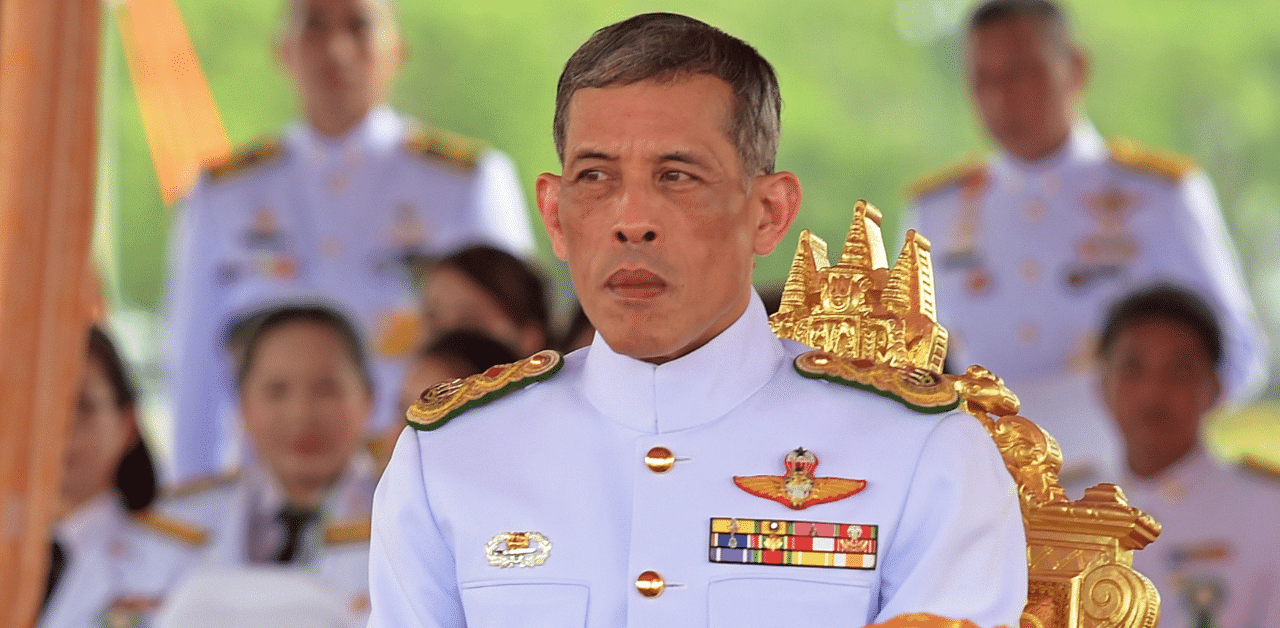
Thailand's monarchy is protected by one of the world's toughest royal defamation laws, making any criticism of the powerful King Maha Vajiralongkorn all but impossible inside the country.
Some student leaders have called for the abolition of the laws as a pro-democracy movement gathers steam in Thailand.
Under section 112 of Thailand's penal code, anyone convicted of defaming, insulting or threatening the king, queen, heir or regent faces between three and 15 years in prison on each count.
But the law is routinely interpreted to include any criticism of any aspect of the monarchy — including criticism posted or shared on social media.
The harshest punishment so far? A man was sentenced to 35 years in jail in 2017 for a series of Facebook posts and comments about the royal family.
Anyone can make an accusation under the law and authorities are bound to investigate.
There is no transparent disclosure of the official number of lese majeste complaints, arrests, charges or sentences — only an inconsistent trickle of information from authorities.
But the use of 112 has risen dramatically since a 2014 coup by the arch-royalist military.
According to legal aid groups, just six people were behind bars on lese majeste convictions before 2014. That number skyrocketed in the following five years, with 169 convictions.
Those charged are almost always convicted. But if they plead guilty, sentences are often halved.
Legal observers and rights campaigners say 112 and other laws like the Computer Crimes Act and sedition, have been used to target dissent in Thailand.
The ultra-royalist military has long used its self-appointed role as the defender of the monarchy to justify coups and political interventions.
But critics say it has used the cover of protecting the monarchy to stifle political opponents and tighten its hold on power.
UN special rapporteur David Kaye urged the regime in 2017 to stop 112 prosecutions, saying such laws "have no place in a democratic country".
The use of 112 has slowed recently. Premier Prayut Chan-O-Cha — leader of the 2014 coup — said in June that the king had requested the government to "refrain" from using it.
But it isn't just the military — self-appointed ultra-royalist civilian groups also monitor the web and report alleged 112 violations.
Prosecutors have dramatically widened what counts as defamation of the royal family in recent decades to include social media and satire.
An anti-junta activist was sentenced in 2017 after posting a news story on Facebook, even though more than 2,000 others had shared the same article.
His two-and-a-half-year sentence was cut short when the king pardoned him last year.
One man was prosecuted for satirical comments he made about the king's favourite dog.
There is no comparative research that shows which countries use royal defamation laws the most, but historian David Streckfuss says Thailand has been "the leader" since 2006 when it comes to its prosecution rate.
Domestic and international media must routinely self-censor their reporting of lese majeste cases and the monarchy in general, or risk prosecution.
Detailed reports on issues such as the list of recent demands from pro-democracy protesters could put reporters at risk.
Readers who share the news could also face prosecution, and even repeating or summarising the details of 112 charges could be interpreted as a violation.
A pro-democracy movement in Thailand is gathering momentum, with rallies bringing thousands out on the streets in recent weeks.
Some prominent activists, including student leaders, have included the abolition of 112 in its list of demands, calling for an open discussion of the royal family's role in Thailand.
King Maha Vajiralongkorn sits at the apex of Thai power, flanked by the military and the country's billionaire business elite.